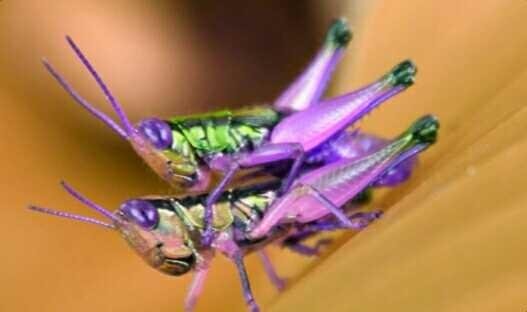
Grasshoppers can live almost anywhere in the world except the north and south poles.
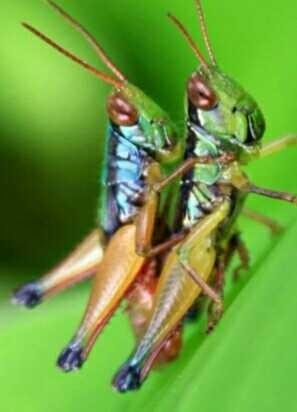
Grasshoppers will usually sound similar to crickets to attract mates.

The reproductive organ of the male locust is called by the name of aedeagus. During the process of reproduction, male locusts will enter spermatophore (a package containing sperm) into the ovipositor of the female locust. The sperm enter the egg through a smooth channel called micropyles.

After the egg is fertilized, the female females will implant an egg about 1-2 inches in the soil using an ovipositor at the tip of the stomach. The female locusts will lay eggs every 3-4 days until all the eggs are removed. Female locusts can lay up to hundreds of grains during laying.
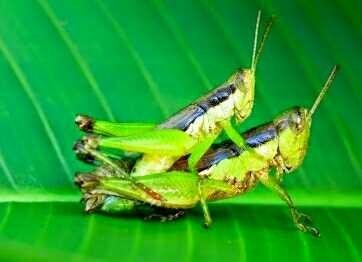
In addition to the ground, grasshoppers can also lay their eggs on the plant (stems, leaves, or flowers). The grasshopper eggs will remain in the ground for months and will hatch during the summer. Mains grasshoppers do not take care of their children after hatching.
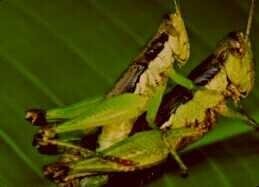
The grasshopper eggs hatch into a nymph, with the appearance of a miniature adult grasshopper with no wings and reproductive organs. Newly hatched nymph nymphs are usually white, but once exposed to sunlight, their distinctive color will soon appear.
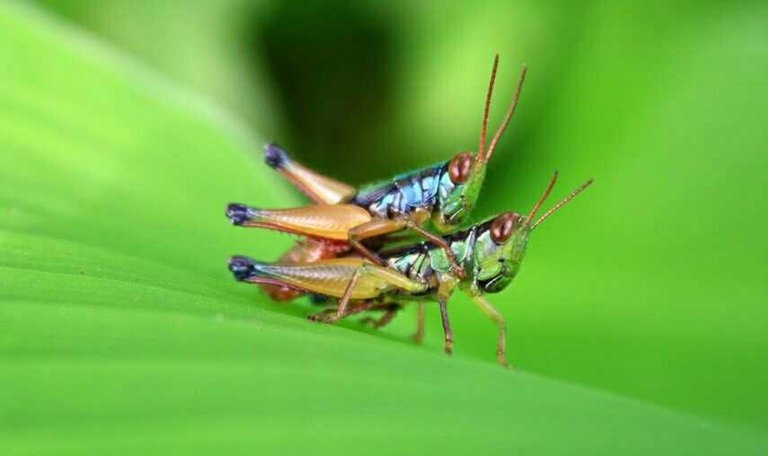
During the growth period, nymph nymphs will experience skin change many times (about 4-6 times) to become adult grasshoppers with additional functional wings. The life span of a locust as a nymph is 25-40 days.

After passing through the nymph stage, it takes them 14 days to become sexually mature. After that their lives only remaining 2-3 weeks, where the rest of the time it was used.
THANKS FOR VISIT MY BLOG @DOLENO







